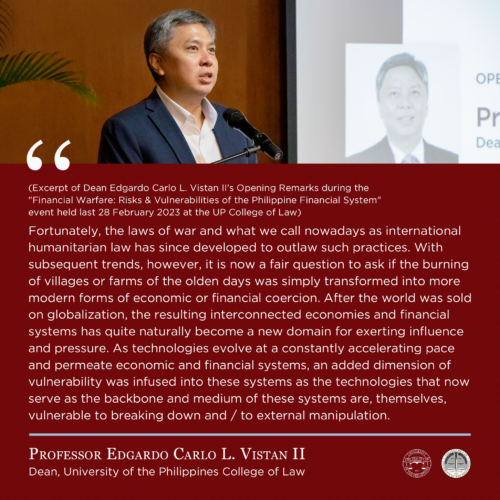
“Together with love, honor and religion, what we call today as”economics” ranks among the top reasons for large-scale conflict or warfare in human history. Disputes over resources themselves and resource or trade routes have occurred and continue to occur quite too often, and this is an affirmation of the importance of economic well-being to a community or nation. This importance is further highlighted by the fact that there was a time in history when, during real or violent wars, targeting the villages, farms, and livestock from which the armies of an enemy obtained sustenance was a legitimate wartime strategy.
Fortunately, the laws of war and what we call nowadays as international humanitarian law has since developed to outlaw such practices. With subsequent trends, however, it is now a fair question to ask if the burning of villages or farms of the olden days was simply transformed into more modern forms of economic or financial coercion. After the world was sold on globalization, the resulting interconnected economies and financial systems has quite naturally become a new domain for exerting influence and pressure. As technologies evolve at a constantly accelerating pace and permeate economic and financial systems, an added dimension of vulnerability was infused into these systems as the technologies that now serve as the backbone and medium of these systems are, themselves, vulnerable to breaking down and / to external manipulation.”
Excerpt of Dean Edgardo Carlo L. Vistan II’s Opening Remarks during the “Financial Warfare: Risks & Vulnerabilities of the Philippine Financial System” event held last 28 February 2023 at the UP College of Law. #IILS #financialwarfare #PFS #UPLaw #UPCollegeofLaw #







































































































 on the upper right corner to select a video.
on the upper right corner to select a video.